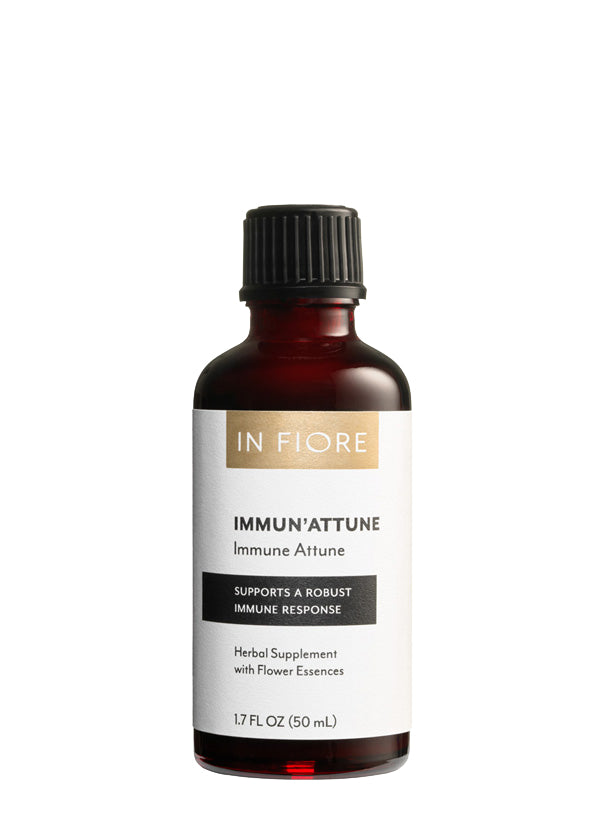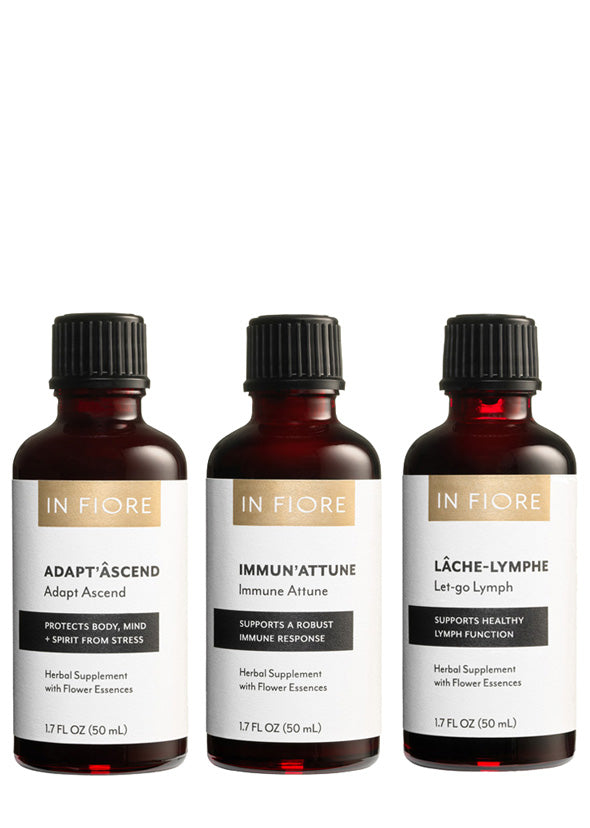Nourish Your Gut, Strengthen Your Immunity

Integrating Diet and Lifestyle for Optimal Gut Health
Understanding the pivotal role of the gut in immune function leads us to explore how diet and lifestyle choices can be optimized to support this crucial aspect of our health. In this article, we delve into the significance of specific dietary components, including beneficial supplements like those found in Immun'Attune, and highlight the importance of lifestyle practices such as regular exercise, adequate sleep, stress management, and proper hydration. Each element plays a unique role in nurturing gut health, thereby enhancing the body’s natural defense mechanisms. By embracing a holistic approach that combines mindful nutrition with healthy lifestyle habits, we can significantly influence our gut health and, consequently, our overall well-being and immune resilience.
The Central Role of the Gut in Immune Function
The human immune system is a complex network of cells, tissues, and organs that work together to defend the body against harmful pathogens. Remarkably, a significant portion of this system resides within the gut, making gut health crucial for overall immune function. The gut-associated lymphoid tissue (GALT) is the most important component of the mucosal immune system and plays a vital role in identifying and fighting pathogens. This intimate connection between the gut and the immune system suggests that maintaining gut health is paramount for overall immune resilience.
Immun'Attune: A Blend of Traditional Ingredients
Immun'Attune, a dietary supplement, incorporates a blend of traditional ingredients, including Astragalus, Shiitake mushrooms, and Ligustrum lucidum fruit, traditionally used to support immune health.
1. Astragalus: A staple in traditional Chinese medicine, Astragalus is known for its potential immune-boosting properties. It is thought to stimulate the body's natural production of white blood cells, critical for fighting infections. Studies have shown that Astragalus can enhance the immune response, particularly in the gut, by modulating gut microbiota and enhancing intestinal barrier function.
2. Shiitake Mushrooms: Shiitake mushrooms are rich in polysaccharides like lentinan, which are known to boost immune function. These compounds can stimulate macrophages, a type of white blood cell, enhancing their ability to combat pathogens. Shiitake mushrooms also have prebiotic properties that positively affect gut flora, further supporting the gut-immune axis.
3. Ligustrum lucidum Fruit: This traditional herb is often used with other botanicals to support immune health. While less studied than Astragalus and Shiitake, Ligustrum lucidum is believed to have immunomodulatory effects. It may aid in regulating immune responses, particularly those associated with the gut mucosa.
Beyond these ingredients, several other supplements and foods are beneficial for gut health:
1. Probiotics: Live beneficial bacteria that restore and maintain a healthy gut microbiome. Foods like yogurt, kefir, sauerkraut, and kimchi are natural sources of probiotics.
2. Prebiotics: Non-digestible fibers that feed beneficial gut bacteria, found in foods like garlic, onions, leeks, artichokes, dandelion greens, chicory root, asparagus, and dark chocolate.
3. Omega-3 Fatty Acids: Found in krill oil, anchovies, sardines, mackerel, trout, and salmon, omega-3s can reduce gut inflammation.
4. Colostrum: High in antibodies, growth factors, and nutrients, supporting the strengthening of the gut lining and promoting a healthy gut microbiome.
5. Bone Broth: Contains amino acids and minerals that support gut health and integrity, especially beneficial for the gut lining.
6. Green Tea: Contains polyphenols and antioxidants that can promote the growth of beneficial gut bacteria and improve gut health.
Lifestyle Factors Influencing Gut Health
1. Regular Exercise: Engaging in physical activity enhances the diversity of gut bacteria. Regular exercise can positively influence the balance of gut microbiota, contributing to better gut health and improving immune function.
2. Sleep Hygiene: Quality sleep is crucial for gut health. Poor sleep patterns can negatively affect the gut microbiome, leading to imbalances that might affect digestion and overall health. Establishing a regular sleep schedule and ensuring sufficient, restful sleep is key to maintaining a healthy gut.
3. Stress Management: Chronic stress significantly impacts gut health, potentially causing inflammation and altering gut bacteria. Engaging in stress-reducing activities like meditation, yoga, or simply taking time for relaxation and leisure can help maintain a healthy gut environment.
4. Hydration: Adequate hydration is vital for digestive health. Water aids digestion, helps the body absorb nutrients effectively, and supports the maintenance of a healthy mucosal lining in the gut.
5. Intermittent Fasting: This eating pattern, which cycles between periods of fasting and eating, can also benefit gut health. Intermittent fasting can rest the digestive system, improve gut barrier function, and influence the composition of the gut microbiome. It's been suggested that intermittent fasting can help reduce inflammation and improve various metabolic markers, which benefit overall gut health.


References
"The role of gut microbiota in immune homeostasis and autoimmunity," Gut Microbes, 2012.
"Astragalus membranaceus: A Review of its Protection Against Inflammation and Gastrointestinal Cancers," American Journal of Chinese Medicine, 2016.
"Shiitake (Lentinula edodes): A Macrofungus with Promising Immunomodulatory and Anticancer Properties," Research in Biotechnology, 2014.
"Ligustrum lucidum: Its Phytochemistry and Pharmacology," Phytotherapy Research, 2018.
"Exercise-induced stress behavior, gut-microbiota-brain axis, and diet: a systematic review for athletes," Journal of the International Society of Sports Nutrition, 2017.
"The effect of sleep deprivation on the gut microbiome," BMJ Open, 2016.
"Stress & the gut-brain axis: Regulation by the microbiome," Neurobiology of Stress, 2017.
"Mild Dehydration Affects Mood in Healthy Young Women," Journal of Nutrition, 2012.
"Effects of Intermittent Fasting on Health, Aging, and Disease," New England Journal of Medicine, 2019.
"The gut microbiome and diet in psychiatry: focus on depression," Current Opinion in Psychiatry, 2015.
"Health benefits of probiotics: a review," ISRN Nutrition, 2014.
"Prebiotic intake reduces the waking cortisol response and alters emotional bias in healthy volunteers," Psychopharmacology, 2015.
"Omega-3 fatty acids and inflammatory processes: from molecules to man," Biochemical Society Transactions, 2017.
"Bovine colostrum and immune function after exercise," Medicine & Science in Sports & Exercise, 2012.
